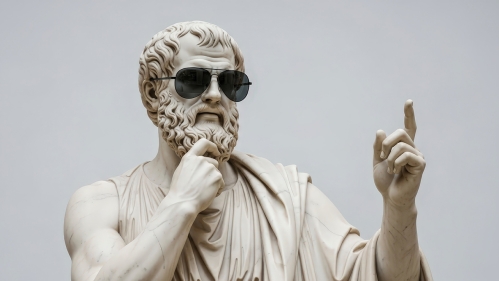Using Humor to Spark Deep Thinking in Philosophy


As a teaching professor, I’m always seeking out interesting pedagogical advice through online training or exercises shared by fellow professors. I’ve begun using humor as a reliably effective way to teach philosophy.
Given that philosophy has a reputation for being dense, humor is an excellent way to relax students’ anxieties, bring joy into the classroom, and foster community.
Philosopher John Morreall thinks that philosophy and humor are a “natural pairing,” especially in education. For example, stand-up comedians develop their material through creative observation, just as philosophy does.
Comedians exercise a (Socratic) give-and-take with their audience, just as professors do with students. As a pedagogical tool, Morreall argues that humor “cultivates mental flexibility.”
Researching for a conference paper on the topic led me to use philosophy memes in the classroom. Memes are something students are already familiar with and well-crafted ones can be funny and smart. Students and I view memes together and they are invited to explain whether the memes do a good job representing the philosopher’s ideas.
Even a badly crafted meme can be a valuable opportunity for students to explain why. For instance, the cover of Thomas Hobbes’ Leviathan famously depicts the absolute Sovereign power who rules with the sword. Students laugh at a meme depicting the Sovereign as the Philadelphia Flyers’ mascot Gritty and are encouraged to discuss if Gritty accurately conveys Hobbes’ ideas.
Funny memes about philosophy can serve as a fun classroom exercise that deepens students’ understanding of the material.


